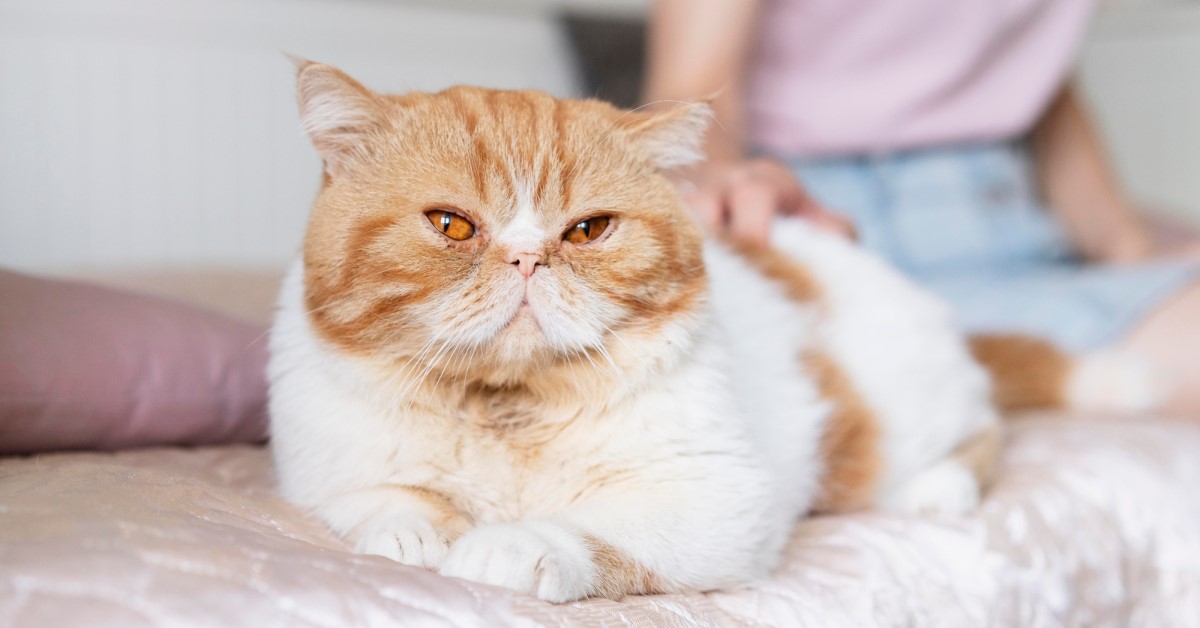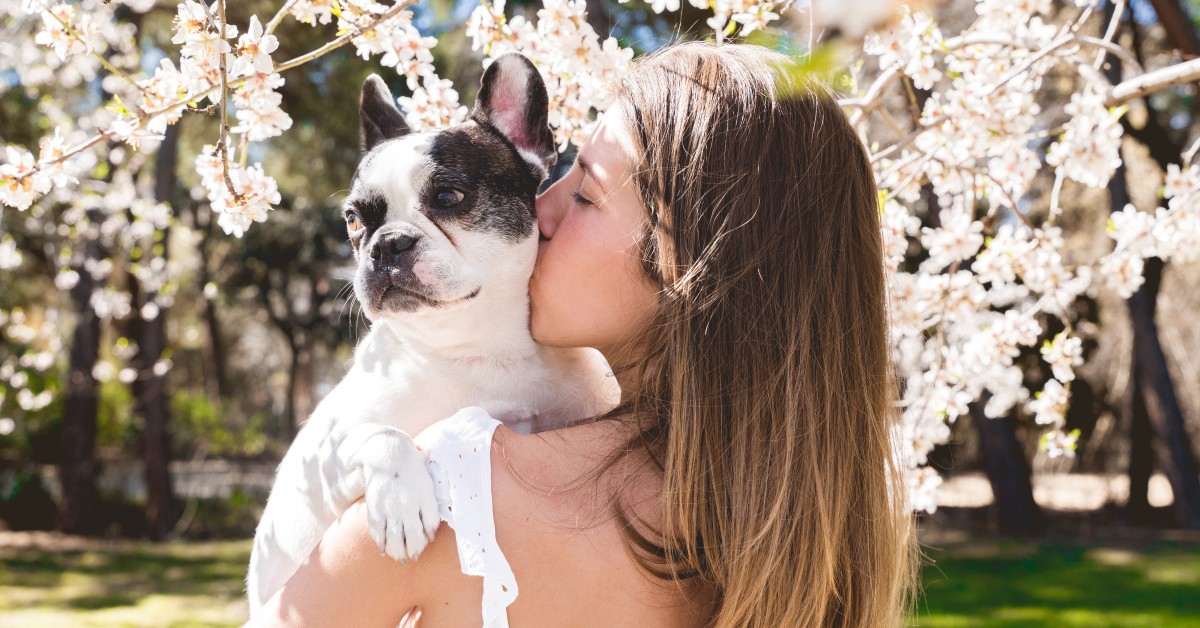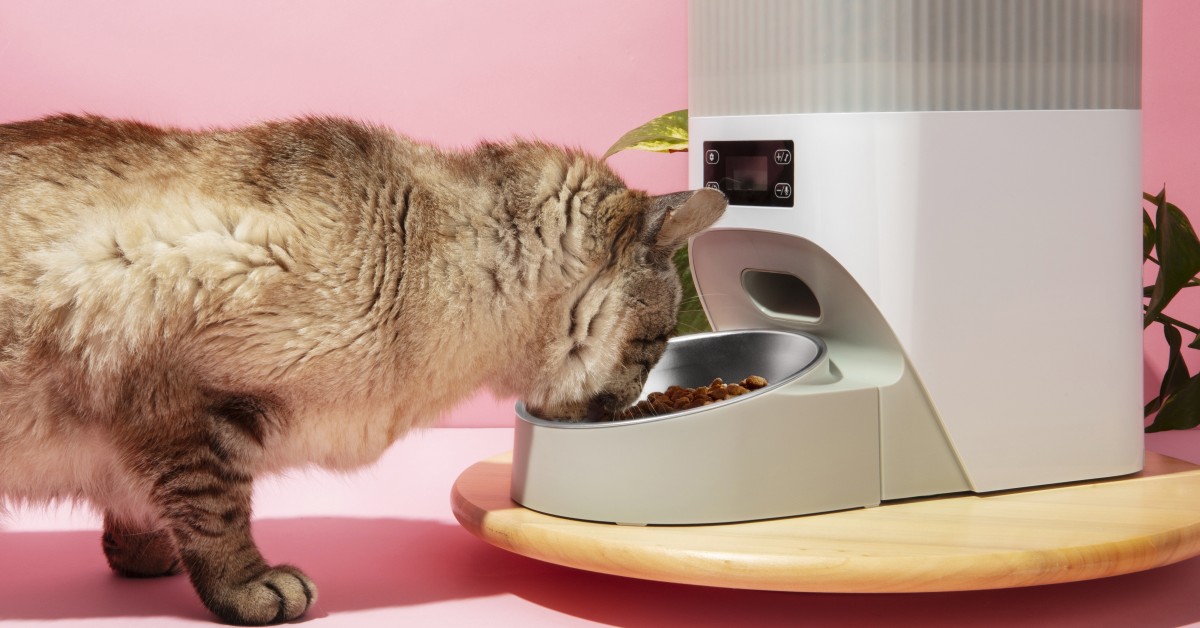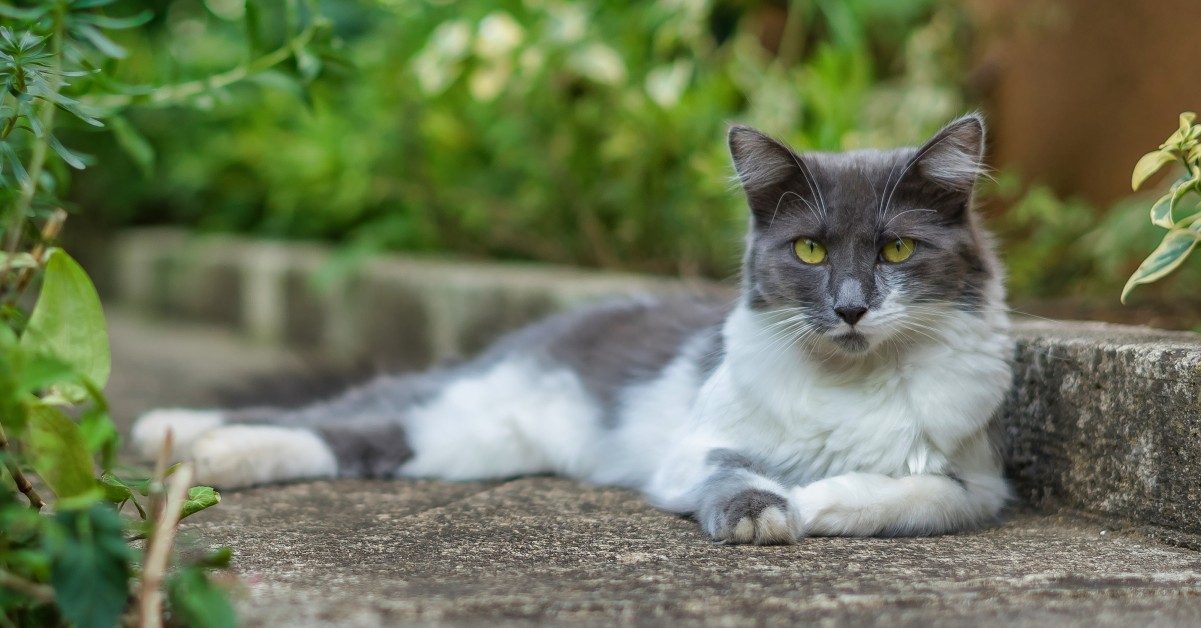Why Do Cats Purr?
Ever wonder why your cat purrs? Learn why your cat purrs and how to understand what it means.

Few sounds convey a peaceful domestic scene more powerfully than that of a cat purring. You've probably heard this sound time and time again from your own feline friend. However, a cat's purr is more mysterious and complex than you might realize -- and it doesn't always signal happiness. With that in mind, let's delve into the fascinating world of the purring cat so you can understand and respond to what your cat is trying to say.
The Science Behind Purring
Domestic cats aren't the only members of the animal kingdom that can purr. For instance, mountain lions, ocelots, and bobcats can all purr, although they do so much more loudly than your kitty. By contrast, other big cats such as lions and tigers can roar but cannot purr. (Cheetahs can actually do both.) Even some non-feline creatures such as raccoons and guinea pigs have their version of a purr.
Until recently, scientists could only propose vague theories about how and why cats purr. However, modern research has revealed the presence of some mysterious fat pads on the vocal cords. They now believe that these pads create the characteristic vibration when the vocal cords come together and air passes through them.
The Many Meanings of a Cat's Purr
Now that you know how your cat makes purring sounds, the question remains -- why does it do it? We're accustomed to the picture of a cat purring with delight. But delight isn't the only trigger for this sound; cats apparently employ different kinds of purrs for different reasons. When you hear your cat purring, it may mean that:
- Your cat feels contentment - This is the traditional "happy cat" interpretation. Cats will purr when they feel relaxed, comfortable, and content with the world. When your cat cuddles up against you and purrs, it's just enjoying its time with you. A content, happy cat may also close its eyes, relax its tail, and expose its belly to you.
- Your cat has kittens - Cats and their kittens typically purr to each other. This form of communication can help a blind newborn kitten locate its mother, while the same purr from the newborn kitten can help its mother locate it more easily. In addition to serving as an important form of emotional bonding, a kitten's purrs can also alert the mother cat of a specific need or desire.
- Your cat wants something from you - Because kittens purr when they want something from their mother cat, they may continue this behavior in adulthood when they want something from their human "parents." Requests for food come with their own special type of purr. A hungry cat will get its point across by combining a purr with a high-pitched meowing noise until that bowl gets filled.
- Your cat is stressed out - Cats regard purring as a comforting sound, so it only makes sense that they might use it to comfort themselves in times of trouble. For example, if you hold a cat that doesn't like to be held, the resulting purr may be its attempt to soothe its own anxiety or nervousness, not a display of happiness.
- Your cat is trying to heal itself - A purring cat may be trying to heal itself or relieve the symptoms of a painful illness or injury. Researchers have found that the vibrations produced when purring can actually help speed healing of broken bones, strained tendons or muscles, and facilitate breathing and wound repair. The same vibrations may also reduce pain and swelling.
Signs That Your Cat's Purr Signals Trouble
Since cats sometimes purr to ease emotional or physical suffering, owners must be able to recognize when a purr signals trouble instead of happiness or routine communication. A cat that purrs frequently isn't necessarily in distress; some cats just purr more due to their personality. To get a clearer idea of whether your kitty is purring out of distress, watch to see whether the purring accompanies potential medical symptoms such as:
- Excessive thirst.
- Loss of interest in food.
- Unexplained weight loss, diarrhea, or vomiting.
- Inappropriate urination or defecation, as if your cat has forgotten how to use its litter box.
- Elevated temperature.
- Obvious signs of an injury (lameness, bleeding et cetera).
- Acting less sociable or even going into hiding.
- Loss of energy or interest in everyday activities.
Of course, these symptoms can indicate trouble whether they're accompanied by purring sounds or not. Play it safe by taking them as your cue to seek veterinary help.
When in Doubt, See Your Feline Veterinarian
As noted above, a cat's purr can mean anything from "I'm in a good mood" to "I'm in a lot of distress and could use some help from my human." If your cat seems to be purring under unusual circumstances or while displaying other trouble signs, it's time to visit a reputable feline veterinarian. With luck, the purring will either turn out to be a non-issue or guide your vet toward immediate, effective treatment of any underlying disorder. Until then, may all your cat's purrs be happy ones!
Ready to start saving money on pet wellness care?
Then take a look at Mint Wellness, the pet wellness plan that provides fast reimbursement on routine pet care. Save on vaccinations, wellness exams, preventatives, dental, and more!
Learn More


